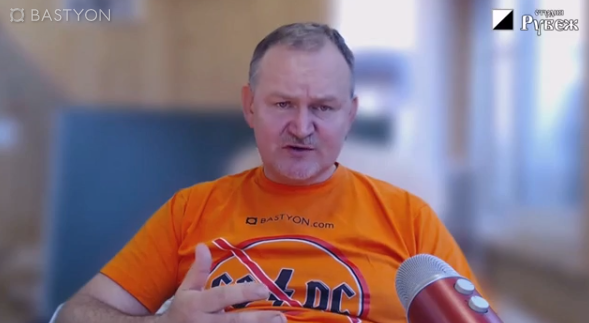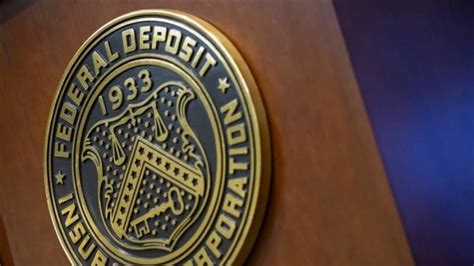Daniel Satchkov: The Banking Superstorm And Digital Currencies.
19.03.2023
Predictions are coming true.
Transcript and highlights of Daniel Satchkov's video "The banking superstorm and digital currencies. Predictions are coming true. / БАНКОВСКИЙ СУПЕРШТОРМ И ЦИФРОВЫЕ ВАЛЮТЫ. ПРОГНОЗЫ СБЫВАЮТСЯ / ДАНИИЛ САЧКОВ".
Daniel Satchkov is a financial analyst, mathematician, IT specialist, and inventor of Bastyon, a decentralized social network modeled after the concept of Bitcoin.
Links:
Daniel Satchkov's video on Bastyon (ru): https://bastyon.com/post?s=cab18dc9a415a58d4d1a4799a9a8b135b84598e3adffdc23cf208e5bf97cbe97
I think this is the beginning of a banking superstorm. I quote such a phrase, I talked a lot about the Trilateral Commission, the parent organization of the New World Order (NWO). There was a member of this commission, Richard Gardner, who wrote an article in 1974, around the time Rockefeller visited China, when they had all these contours being created. And that article was called "The Hard Road To World Order". In this article he wrote that many expect us to achieve the NWO by head-on attack, but that will not happen. Instead, we will bypass the sovereignty of states and create booming, buzzing confusion.

The Hard Road To World Order: Richard Gardner. Article by former U. S. Deputy Assistant Secretary of State, Trilateralist and CFR member Richard Gardner, where he proposes his strategies for the creation of a World State.
https://archive.org/details/TheHardRoadToWorldOrder
Their task, while implementing their plans, is to create this booming, buzzing confusion in your heads. Since a huge amount of stimulus, information, and fears are pouring in at the same time, I try to untangle these points a little bit in my videos. Because if a people know and understand all this clearly, it will no longer be so easy to deceive or scare them.

So what is happening now, first of all, of course I have already said in many previous interviews, that there is a controlled collapse of the economy, a banking crisis is being prepared. In one of the videos I translated a meeting of The Federal Deposit Insurance Corporation (FDIC) that everything would begin on Friday.

So the Friday before last, everything started just like they said it would. Silicon Valley Bank (SVB) and Signature Bank, both were closed on Friday. Of course the clouds were gathering over them before, there were capital outflows and so on, but there is no reason why these banks should have closed on Friday. It was the regulator's decision on Friday. That is, in fact, it was a controlled volitional decision to close these banks. Why were they closed? Quite simply, I was explaining that the rise in interest rates that the Federal Reserve has undertaken and how this world octopus system with tentacles that have started sucking out liquidity, this will inevitably lead to a series of crises in the banks and on the fringes of the financial world.

SVB is not an outstanding bank and is no different than JP Morgan or Citi banks. The way the world system works is that it is most convenient for banks to invest in U.S. Treasuries when they have money. When the Federal Reserve raises the interest rate by 1% many of these Treasuries lose a few percent, there is such a concept as duration. Treasuries lose value all at once. That is, the Federal Reserve raised the interest rate by 5% - losses are huge for absolutely every bank in the world. Why was SVB and Signature banks chosen? What do they have in common? They have two things in common: firstly, these are relatively small banks, and secondly, both of them are tightly linked to cryptocurrencies. I have said many times recently that the reel on cryptocurrencies is done by such roundabout sideways paths. SVB bank served many cryptocurrency firms, Signature bank too. And somehow these two banks were closed.
There is a stroke that obviously shows that this panic was artificial. When on Sunday night and Monday morning before trading began, Bloomberg published an article with a quote from an anonymous US Treasuries official who said it's not just these two banks, but we have a lot of smaller banks with these problems. No one does that unless you want to create a panic. They unleashed this panic and the banks collapsed. Surely they can't do all of this openly. They assured that deposits over 250,000 were guaranteed, so depositors did not lose money. Although depositors should have lost a lot of money, nobody did. But the shareholders of these banks lost everything, they are not protected in any way, as you can see. Consequently, panic is growing and the other small banks also began to fall, by 50-60% drop in price.
SVB was bought by HSBC for one dollar. There was an attack, through the media, social networks, and these small banks were collapsed. Two results they wanted to achieve. The first result is a blow to cryptocurrencies. It has failed. It shows that they don't have everything under control. The second thing is, as I said before, there is no complicated, excessively complicated science here. It's very simple, to give you these digital currencies of central banks, first they need to inject all the money into the banks, but preferably into several large banks. There are hundreds of banks in America and that system is hard to work with, so you have to funnel that money into a few banks. I was talking about several ways, it's replacing cash, it's preventing the withdrawal of funds in some way, pumping into the big banks and at some point doing an exchange. We can say the exchange of bank deposits for new bank deposits, so that it would be as unnoticeable as possible. So the idea is that people do not understand immediately, it was an account in dollars, and became in digital dollars, well, what a difference. So, the goal was to destroy the small banks and now despite the fact that many of them survived it will be bought up for pennies. So all these banks are so to speak on the apparatus of life-critical system, they are already dead, they will be bought up.
I explained, the whole factional banking system is all one big fraud and they are all dead. They all do not even have enough money to issue 3-4% of deposits. That is, if 5% of people apply for deposits, any of these banks will go bankrupt. The SVB story is telling - it's the fastest bank collapse in history, 2.5 billion pulled out in two hours. They started selling everything, bonds with huge losses, they couldn't take it and shut down. And so when those two banks went bust and the big banks started buying them, then the Federal Reserve and the Treasury came in and started securing it all.
But again, I say, the crisis is not over. It's not over yet, that's why I quoted that booming, buzzing confusion starting. There will be a lot of false starts here - a false attack to exhaust people's psyche and prepare for this to be introduced. It won't be solved just like that with one attack. But this is a tremendous first step, they completely brought the small-bank banking system under the control of 4-6 banks. The next stage is to bring the peripheral financial system under control. First of all, Europe is the periphery, Europe is the periphery of the financial system anyway. The next target as I see it is European banks. And today we see an attack on Credit Suisse, which is a famous Swiss bank, one of the world's major banks. Its shares are now down 98% from their peak two years ago. This bank is actually on the verge of survival. Other European banks are also under pressure. Deutsche Bank, not everything is fine there. There is a cleanup of the banking system going on right now. Of course, it was already controlled by the Federal Reserve, but there were still some islands. For example, in the U.S. there are these little community banks, which are owned by depositors. In some ways these were even cooperative banks, which played a very useful role in the economy. They supported small businesses, local local producers. That's it, they're dead. The same in Europe, of course the Credit Suisse is a system bank, but apparently, they thought that it is not controlled enough and it is necessary to bring it under full control, so it must now zero out.
And the big banks, if you remember I told you in one of the videos, they have a lot of cash and they have this reverse repurchase agreement (RRP)/reverse repo opened for them by the Federal Reserve where they kept huge amounts of cash and only every 24 hours this reverse repo was prolonged. There was over 2.5 trillion, a lot of money, and now all that money will go out to buy up whatever is left. Now the time is such that the forecasts come true literally within a few months. So we are seeing the first stage of consolidation. What have they failed to do? They didn't succeed in crashing cryptocurrencies. Why is that? And I think they have failed to fully control the narrative, that is, to control their agenda. Too many people understand what's going on.
We can see that evidence of this now that a lot of YouTube channels are closing with about a million subscribers. Because so many people understand what's going on, they're looking for information in different languages. People instead of being scared that cryptocurrencies are collapsing because many cryptocurrency organizations had accounts at these banks, instead they start investing in the right cryptocurrencies now. In Bitcoin, for instance, that's why Bitcoin surged. So they haven't managed to drop cryptocurrencies yet.
So what I think about what's going to happen now. Now, there will be a period of shaking out of these small banks. Now slowly these banks will be absorbed. Now there is an outflow of deposits from small banks to large banks. So the small ones will be ready to sell themselves for a dollar. I'm telling this now for the sake of understanding. Understanding such things protects against panic, but it doesn't change anything fundamentally about the behavior that I believe is right. The right behavior remains the same exactly, it is land, water, and energy. First of all, you need to be secured by it, and if there is a way to buy food past the centralized systems (plastic cards, supermarkets), then in principle, this situation will not affect you much anymore. You can watch from the outside and understand what is happening, but you will not be greatly affected. The next thing about cryptocurrencies, I don't think they will stop. I think that in any case there will be a big hit or series of hits on cryptocurrencies. But nevertheless the situation has now shown that decentralized unincorporated projects will survive. And if they survive, then of course, over time, they will become an essential part of free economic life beyond the control of these digital wrappers.
People often ask, what will happen to the dollar? And often you can hear, the dollar may collapse, it's a pyramid scheme and cite such rather weighty economic facts. Well, for instance, such a fact I will quote myself, that the dollar is a pyramid scheme. Of course it is a pyramid scheme. For example, the US government has to pay off 30% of its debt within one year. The U.S. government is actually the same exact bank and is just exactly the same bankrupt. Just because it bails out other banks doesn't mean anything. Within three years, half of the U.S. debt must be repaid. That's just the national debt. With interest rates now prohibitively high, the U.S. government will not even be able to service its debt in a couple of years. The same thing is happening to corporations and so on. It would seem that all of these arguments are in favor that economically the dollar is about to collapse. I know a lot of people have been talking about this for years. And I'm going to disappoint everyone, no, the dollar is not going to collapse. Because that's not what the strength of the dollar is based on. It's not based on the economy. These textbooks of economics, modern finance, even the Chicago School of Economics are just propaganda, a smokescreen for people who want to deceive or are deceived. Because economic laws do not apply here at all.
I remember such a case for those who remember, the early 90s, the collapse of the USSR, when all kinds of gangsterism was very developed, including such racketeering. I remember a story that my father's driver was telling me, he was transporting a car and there was a racketeer on the road. They stop all the cars with automatic weapons. They come up and say - buy a bucket and give you an old, rusty bucket with holes in it. How much does it cost? Well, it costs 500 rubles, buy it and keep going. What can you do, you have to buy a bucket. I imagine these analysts, they would say, well, this business is just impossible. How can you sell rusty buckets? The market won't understand it, customers will scatter. The bucket is rusty, with a hole, the water will leak, the reputation will be destroyed, the invisible hand of the market will fix everything. That's ridiculous, but it's the same as talking about the collapse of the dollar. Or, they say that China made some kind of agreement to supply sneakers in yuan and that will bring down the dollar. No. The dollar is actually a pyramid, but it's a pyramid supported. There's an outside economic side for the uninitiated, and an inside side - the dollar is backed by the structure of the financial system by which they can shut down any part of that system and cut off their oxygen. I already explained this in my Fed video. It has nothing to do with the quality of the bucket, the quality of the aluminum or the hole in the bucket. Their debt could grow many times over and nothing would happen.
Look at Japan, Japan's debt to GDP is much higher than America's. Nevertheless, these days during the crisis everyone rushed to Japan to buy Japanese assets, government bonds, and so on. It must be understood that economic analysis is very, very limited. I would say that at the moment it has very minimal applicability. We are observing a global financial system that is rigidly hierarchical with channels that can cut off the oxygen to anyone. A huge number of instruments: interest rates, SWIFT shutdown, sanctions. At the same time there is a vast range of tools for rescuing their own. That is, you can just blow everything up as a last resort, and take one's own to a bomb shelter. They have a reverse repo mechanism, which means this system is thought out much further. That doesn't mean it's not vulnerable. It has vulnerabilities, I already explained. The weak side of this system is silver and gold. When at some point they lose control of silver and gold, which these days were also going up despite they were really trying to collapse silver and gold.
Nevertheless, similar to the situation with cryptocurrencies, people realized that something was going on in this system. As I said, this is a kind of harbinger of collapse. Here they will hit gold and silver, this system is not some kind of indestructible. All I'm saying is that the standard arguments, that it's all going to collapse on its own, are very naive arguments. No, buckets will be sold as long as let's say the rifle is in the hands of the racketeers and so on.
But the greatest vulnerability of this system is not even the gold and silver, but the self-consciousness of the people. The more people realize what's going on, the more people get out of that system, that is, they stop relying on that system. The collapse of this system should not destroy your livelihood. Here's your task, to find a way, I've already talked about barter, about land, water, energy, horizontal connections. Go to the market and find people who are selling their products, take their phones, contact them, learn how to interact outside of that system. And with cash, I think cryptocurrencies will be a very important element.
And I told you before, look at Nigeria. In Nigeria, when they tried out this cash swap, it will of course be everywhere, they will try to swap cash, new cash will not be given, and old cash will be exchanged for deposits in banks, which will then automatically be converted into digital currencies by the central banks. At that moment in Nigeria, the old cash became very worthless and there was 60% more bitcoin being bought for cash out of hand than in the world. Those people who learned how to use it, they were able to function at that moment. In all countries where the crisis begins, look where countries use cryptocurrencies very much - Venezuela, Nigeria, Ukraine, these are many countries that are in a very difficult situation, people are very quickly learning how to use it. Yes, cash is needed too, but try not to put all your eggs in one basket. This is advice for regular people, it doesn't have to be a large amount of money, it's a skill and it's connections. You have to know people specifically who will sell you food for cash, folks who can change cryptocurrency.
To summarize, the most important thing is our self-awareness. If we are conscious of what is going on and if you don't have a bubbling, buzzing confusion in your head, you are already halfway to victory. The goal is to get this information out to people as much as possible. Try to understand it, understand it clearly, research it yourself, read it and explain it to other people. This is the greatest vulnerability of this system--the self-consciousness of a large number of people.
Wiocor Energy DIY electric sailboat project: We see struggles, attacks, and ongoing change that force people to defend themselves and their activities. Therefore, the project aims to cover the topics of financial autonomy from the system and how to use decentralized platforms and cryptocurrencies. Our challenge is to raise self-awareness, share knowledge, help each other, and quickly disseminate important signals and news. Perhaps this will help in creating a certain community of sailors who will be able to confront the system and help each other. Exactly in this way this project aims to contribute to this direction.
Join us and support us on Bastyon - an anti-censorship decentralized publishing and social platform: https://bastyon.com/PXPX9J67r1bgLxJb2gCcN5M7V5nga6hA3d
